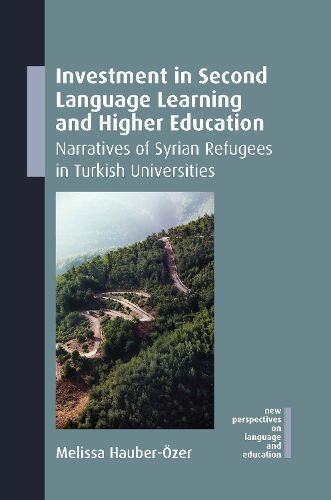Readings Newsletter
Become a Readings Member to make your shopping experience even easier.
Sign in or sign up for free!
You’re not far away from qualifying for FREE standard shipping within Australia
You’ve qualified for FREE standard shipping within Australia
The cart is loading…






Builds on Norton's work on investment to contest pervasive deficit perspectives that portray refugees as helpless victims or a public burden.
Set in Tuerkiye, the country with the largest number of refugees in the world, this book expands the limited literature on higher education for refugees, particularly the gap in research in displacement settings.
It examines the experiences of Syrian young adult refugees studying in Turkish universities, highlighting the intersections between linguistic, social, economic and structural challenges and the students' resourceful approaches to overcoming these barriers. Their stories depict both unique and common experiences of accessing higher education during displacement and underscore the importance of quality language instruction, interpersonal relationships, and supportive faculty members.
It contests pervasive deficit perspectives that portray refugees as helpless victims or a public burden and calls into question assumptions about integration in the nation of asylum being the ideal long-term outcome for refugees. The book also lays a methodological foundation for future decolonizing work in applied linguistics, centering the experiences of refugees and disrupting Northern dominance of forced migration scholarship.
$9.00 standard shipping within Australia
FREE standard shipping within Australia for orders over $100.00
Express & International shipping calculated at checkout
Stock availability can be subject to change without notice. We recommend calling the shop or contacting our online team to check availability of low stock items. Please see our Shopping Online page for more details.
Builds on Norton's work on investment to contest pervasive deficit perspectives that portray refugees as helpless victims or a public burden.
Set in Tuerkiye, the country with the largest number of refugees in the world, this book expands the limited literature on higher education for refugees, particularly the gap in research in displacement settings.
It examines the experiences of Syrian young adult refugees studying in Turkish universities, highlighting the intersections between linguistic, social, economic and structural challenges and the students' resourceful approaches to overcoming these barriers. Their stories depict both unique and common experiences of accessing higher education during displacement and underscore the importance of quality language instruction, interpersonal relationships, and supportive faculty members.
It contests pervasive deficit perspectives that portray refugees as helpless victims or a public burden and calls into question assumptions about integration in the nation of asylum being the ideal long-term outcome for refugees. The book also lays a methodological foundation for future decolonizing work in applied linguistics, centering the experiences of refugees and disrupting Northern dominance of forced migration scholarship.